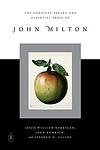John Milton
John Milton was a 17th-century English poet, polemicist, and civil servant known for his epic poem 'Paradise Lost'. His work is considered one of the greatest in English literature, and he is also known for his writings on political and religious subjects during a time of great social change in England.
Books
This list of books are ONLY the books that have been ranked on the lists that are aggregated on this site. This is not a comprehensive list of all books by this author.
-
1. Paradise Lost
"Paradise Lost" is an epic poem that explores the biblical story of Adam and Eve's fall from grace in the Garden of Eden. It delves into their temptation by Satan, their subsequent expulsion, and the consequences of their disobedience. The narrative also provides a complex portrayal of Satan as a rebellious angel, who, after being cast out of Heaven, seeks revenge by causing mankind's downfall. The poem is a profound exploration of free will, divine justice, and the human struggle with good and evil.
-
2. Areopagitica
"Areopagitica" is a powerful 17th-century polemic against censorship and a passionate defense of the freedom of speech and expression. The author argues against the Licensing Order of 1643, which allowed the British government to censor literature and other forms of expression. He asserts that censorship is a form of tyranny and that in a true republic, freedom of thought and discussion should be promoted, not suppressed. The author also contends that exposure to a wide range of viewpoints, including those that may be false or harmful, is necessary for intellectual and moral growth.
-
3. The Complete Poetry and Essential Prose of John Milton
This book is a comprehensive collection of the well-known English poet's work, including his complete poetry and essential prose. It provides readers with a deep dive into his profound and influential writings that range from religious and political themes to classic epic literature. The volume also includes his most famous pieces, such as "Paradise Lost", "Paradise Regained", and "Samson Agonistes". The collection is accompanied by detailed notes and commentary, offering insights into the historical and literary context of the works.
-
4. Paradise Regained
This epic poem is a sequel to a much longer work and focuses on the biblical story of Jesus Christ's temptation by Satan in the wilderness. Over the course of four books, the narrative explores the intellectual and spiritual battle between the Son of God and the devil, who attempts to seduce him with various arguments and worldly temptations. However, Jesus remains steadfast in his faith and virtue, ultimately reclaiming the paradise that was lost by Adam and Eve's fall from grace. The poem celebrates the themes of redemption, the triumph of good over evil, and the wisdom and strength gained through suffering and temptation.
-
5. Lycidas, Comus, And The Minor Poems
This collection brings together some of the most notable early works of a seminal figure in English literature, showcasing his mastery of verse and profound engagement with themes of morality, virtue, and the human condition. "Lycidas" is an elegy that mourns the death of a friend while meditating on the poetic vocation and the nature of life and death. "Comus" is a masque that explores the struggle between chastity and licentiousness through the story of a virtuous lady resisting the temptations of the titular enchanter. The minor poems included offer a glimpse into the writer's development as a poet, with pieces that range from the pastoral to the personal, reflecting both classical influences and innovative poetics that would come to characterize his later, more epic works.
-
6. Samson Agonistes
The work is a dramatic poem that follows the final days of Samson, a once-mighty biblical hero who has been captured and blinded by his enemies, the Philistines. In his state of physical and spiritual anguish, Samson grapples with his past actions, his relationship with God, and his desire for vengeance. As he is brought out to entertain the Philistines in their temple, he ultimately finds strength in his faith, leading to a catastrophic act of destruction where he pulls down the temple pillars, killing himself along with his captors, and fulfilling his destiny as a tragic hero.





